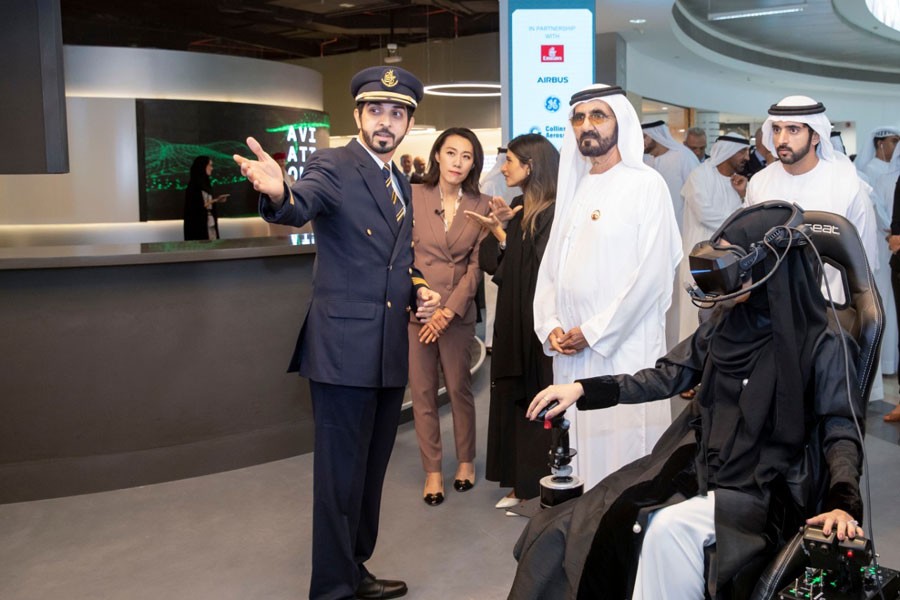To innovate and create the next era of aviation and to positively impact the lives of one billion people the Aviation X Lab was unveiled at Area 2071 at Emirates Towers in Dubai recently.
Area 2071 is a creative ecosystem to design the future that brings together government, creative individuals, businesses, and people from all walks of life, says a press release.
Aviation X Lab establishes a long-term partnership between Emirates and Airbus, Collins Aerospace, GE Aviation, and Thales with an aim to enhance the travel experience. Telecom provider du has signed on as its digital innovation partner.
Sheikh Ahmed bin Saeed Al Maktoum, chairman and chief executive officer of Emirates Airline and Group said: “Dubai is looking to mitigate the challenges in the aviation ecosystem. We want to look far beyond aviation as it exists today and embrace the innovations waiting to happen, the next set of Big Ideas in the aviation space. Aviation X Lab will identify, support, fund and make these innovations accessible globally. Our aim is to transform human mobility.”
Aviation X Lab announced its first-ever challenges with the deadline for submissions set in early 2020.
Challenge 1: Carbon negative aviation industry is challenge number one. Although the aviation industry is responsible for just two per cent of the world’s carbon emissions, the challenge is based on the premise that airlines produces 115gm of CO2 per passenger kilometre (km), which is 859 million tonnes of CO2 emissions per year. The challenge is to reduce this by 100gm or 87 per cent to 15gm of CO2 per passenger km by 2030.
Challenge 2: Airports to air portals is challenge number two. While the travel industry is projected to double in the next 15 years, adding 3.4 billion new travellers, the current model of airports is a barrier to passenger growth. The challenge is to rethink the airports’ model to achieve metrics of 10 passengers per M2 of airport infrastructure with a 10-minute maximum transition time between landside and airside.
Aviation X Lab is inviting and reaching out to start-ups, innovators, academics, NGOs, activists and corporates globally to participate in the challenges. The incubator will select teams and bring them to Dubai to co-create, experiment and develop prototypes at their premises in Area 2071. In the next phase, up to four teams will be shortlisted, and invited to pitch to investors and venture capitalists for additional funding.
Aviation X Lab will work in cycles of 12 months with five key active phases: Launching challenges, sourcing start-ups globally, validating concepts, exploring rapid feasibility, and sourcing funding. Through this journey, X Lab will offer hands-on logistics support, research, resources, peer feedback, mentorship, and close collaboration.


